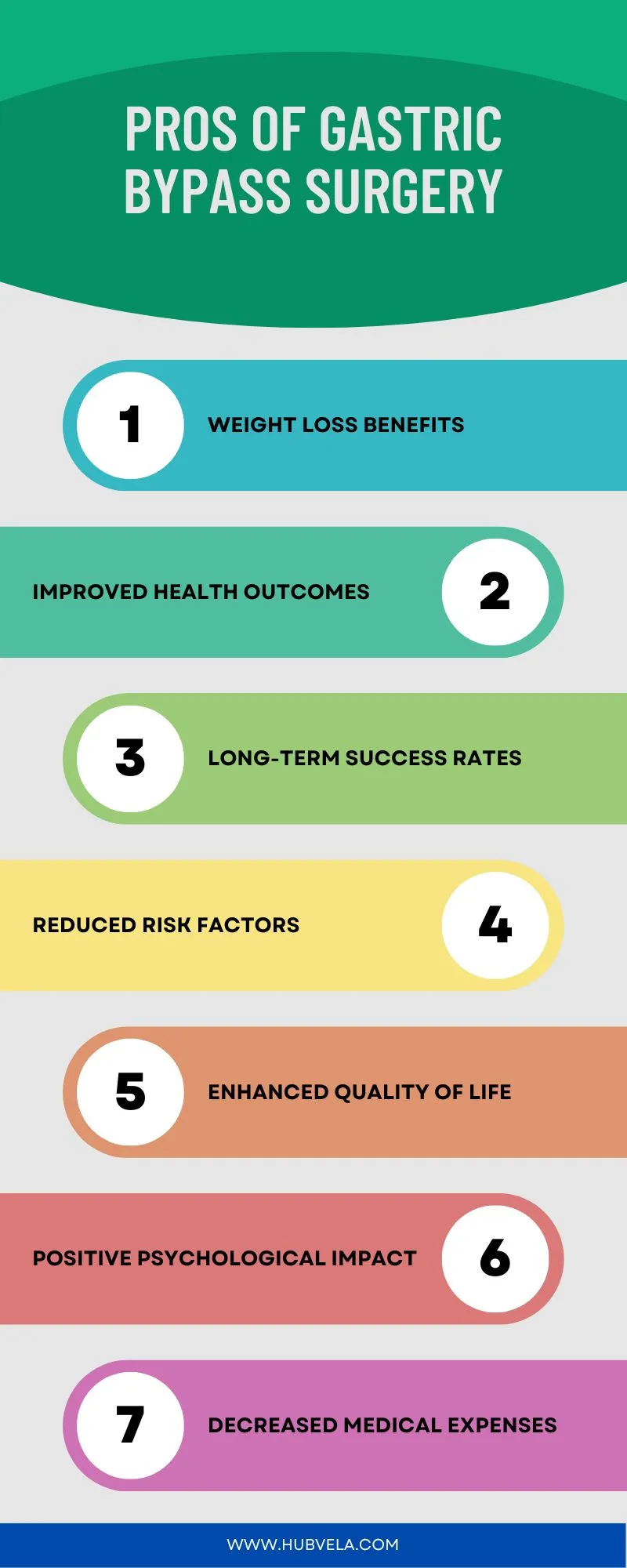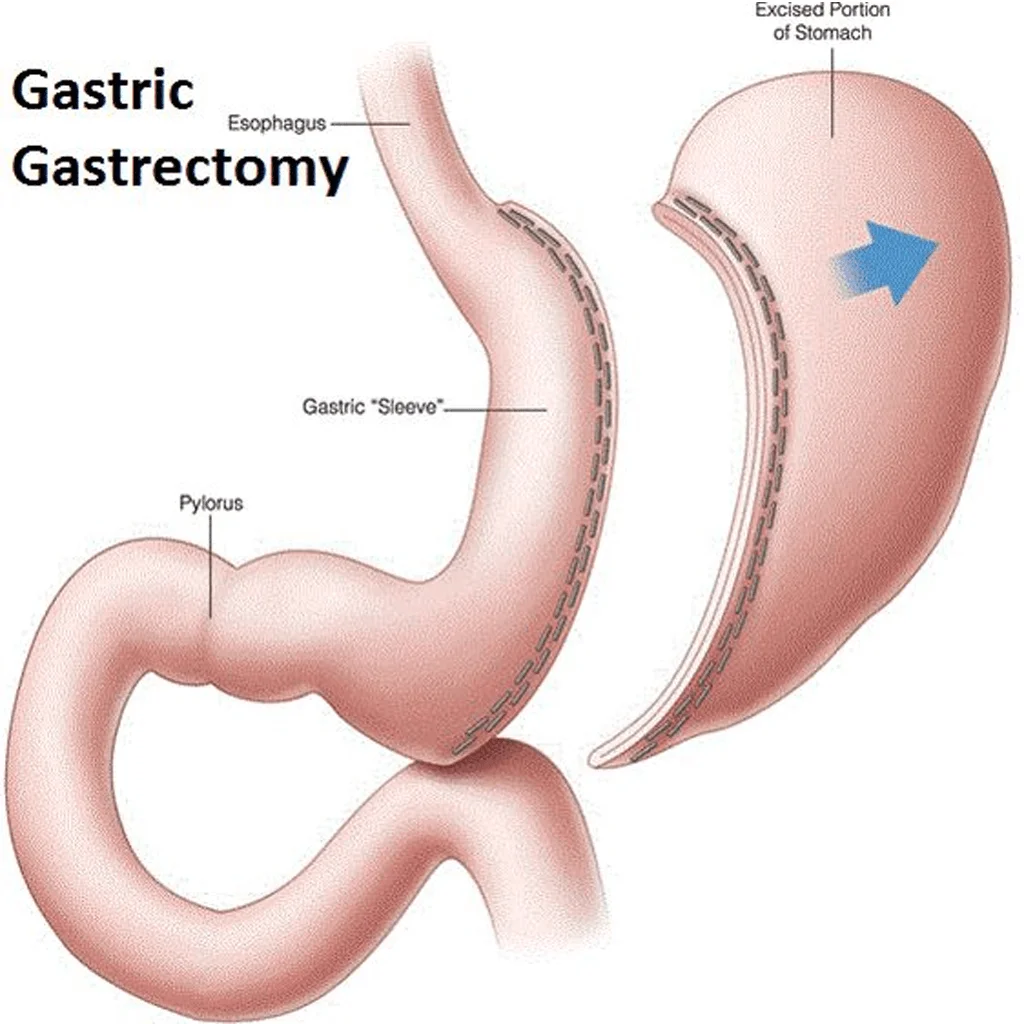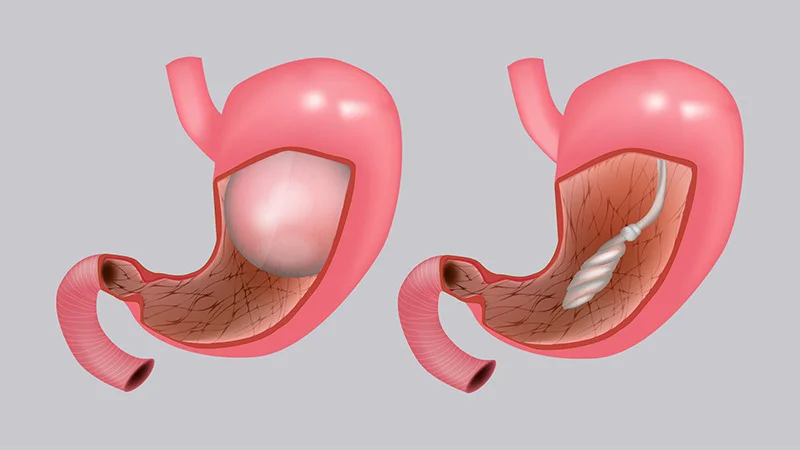Stomach Reduction – Obesity Surgery — A Comprehensive Guide:
Introduction:
Stomach Reduction – Obesity Surgery
Stomach Reduction – Obesity Surgery — A Comprehensive Guide: Obesity is a global epidemic with severe health consequences, including diabetes, heart disease, and reduced life expectancy. As traditional weight loss methods often fail for individuals with severe obesity, stomach reduction surgery, also known as bariatric surgery, has become a vital intervention. This comprehensive guide delves into the various aspects of stomach reduction surgery, including types, benefits, risks, and what to expect before, during, and after the procedure.
Stomach Reduction – Obesity Surgery: Understanding Obesity
The Scale of the Problem
Stomach Reduction – Obesity Surgery: Obesity affects millions worldwide, with an increasing prevalence in both developed and developing countries. It is defined by a Body Mass Index (BMI) of 30 or higher. Severe obesity, with a BMI of 40 or higher, poses even greater health risks.
Health Implications
Obesity is associated with numerous health issues:
- Type 2 Diabetes: Obesity is a significant risk factor for developing insulin resistance and diabetes.
- Cardiovascular Diseases: Excess weight strains the heart, leading to hypertension, coronary artery disease, and stroke.
- Sleep Apnea: Fat deposits around the neck can obstruct breathing during sleep.
- Joint Problems: Excess weight puts additional stress on joints, leading to conditions like osteoarthritis.
- Mental Health: Obesity can contribute to low self-esteem, depression, and anxiety.
Stomach Reduction – Obesity Surgery: What is Stomach Reduction Surgery?
Stomach Reduction – Obesity Surgery: Stomach reduction surgery involves modifying the stomach and, in some cases, the digestive tract to reduce food intake and absorption, thereby promoting weight loss. The primary goal is to help individuals achieve significant and sustained weight loss, improving overall health and quality of life.
Types of Stomach Reduction Surgeries
1. Gastric Sleeve Surgery
Procedure: In gastric sleeve surgery, also known as sleeve gastrectomy, approximately 75-80% of the stomach is removed, leaving a tube-like structure. This significantly reduces the stomach’s capacity, limiting food intake.
Benefits:
- Substantial weight loss
- Reduced hunger due to lower levels of ghrelin (hunger hormone)
- Improvement or resolution of obesity-related conditions
Risks:
- Potential for leakage at the staple line
- Nutrient deficiencies
- Postoperative complications such as infection or bleeding
2. Gastric Bypass Surgery
Procedure: Gastric bypass surgery, or Roux-en-Y gastric bypass, involves creating a small stomach pouch and rerouting a portion of the small intestine to this pouch. This restricts food intake and reduces nutrient absorption.
Benefits:
- Significant and rapid weight loss
- Improvement or resolution of type 2 diabetes
- Long-term weight maintenance
Risks:
- Dumping syndrome (rapid gastric emptying)
- Nutrient deficiencies
- Potential for bowel obstruction
3. Adjustable Gastric Banding
Procedure: This procedure involves placing an adjustable band around the upper part of the stomach, creating a small pouch. The band’s tightness can be adjusted to control food intake.
Benefits:
- Adjustable and reversible
- Shorter recovery time
- Less invasive compared to other bariatric surgeries
Risks:
- Slower weight loss compared to other methods
- Band slippage or erosion
- Need for follow-up adjustments
4. Biliopancreatic Diversion with Duodenal Switch (BPD/DS)
Procedure: This complex surgery combines a sleeve gastrectomy with a bypass of a significant portion of the small intestine. It significantly reduces the stomach size and limits nutrient absorption.
Benefits:
- Highest potential for weight loss
- Effective in resolving severe obesity-related conditions
- Reduced hunger due to hormonal changes
Risks:
- Higher risk of nutritional deficiencies
- More complex surgery with greater risk of complications
- Requires lifelong follow-up and supplementation
Candidates for Stomach Reduction Surgery
Eligibility Criteria
Candidates for stomach reduction surgery typically meet the following criteria:
- BMI of 40 or higher
- BMI of 35 or higher with obesity-related health conditions (e.g., diabetes, hypertension)
- Failed attempts at conventional weight loss methods
- Commitment to long-term lifestyle changes and follow-up care
Preoperative Evaluation
A thorough preoperative evaluation is essential to determine if a patient is suitable for surgery. This includes:
- Medical history review
- Physical examination
- Nutritional and psychological assessments
- Blood tests and imaging studies
Stomach Reduction – Obesity Surgery: Preparing for Surgery
Lifestyle Changes
Before surgery, patients are often advised to make lifestyle changes to improve surgical outcomes:
- Dietary Modifications: Adopting a balanced, low-calorie diet to lose some weight preoperatively
- Exercise: Increasing physical activity to enhance overall health
- Smoking Cessation: Quitting smoking to reduce surgical risks and improve healing
Preoperative Diet
A special preoperative diet is usually prescribed for one to two weeks before surgery. This diet helps reduce liver size, making the surgery safer and easier to perform. It typically includes:
- High-protein, low-carbohydrate shakes
- Clear liquids like broth and sugar-free gelatin
The Surgical Process
Anesthesia and Incision
Stomach reduction surgeries are performed under general anesthesia. Most procedures are done laparoscopically, involving several small incisions rather than a large open incision. This minimally invasive approach leads to faster recovery and fewer complications.
Stomach Reduction – Obesity Surgery: The Procedure
The specific steps vary depending on the type of surgery. In general:
- Gastric Sleeve: A large portion of the stomach is removed, and the remaining section is stapled to create a sleeve.
- Gastric Bypass: A small stomach pouch is created, and a portion of the small intestine is rerouted to this pouch.
- Adjustable Gastric Banding: An adjustable band is placed around the upper stomach to create a small pouch.
- BPD/DS: A sleeve gastrectomy is performed, followed by rerouting a significant portion of the small intestine.
Recovery Room
After surgery, patients are monitored in the recovery room for a few hours before being transferred to a hospital room. Pain management, hydration, and early mobilization are crucial during this period.
Stomach Reduction – Obesity Surgery: Postoperative Care
Hospital Stay
The length of the hospital stay varies depending on the type of surgery and the patient’s overall health. Generally:
- Gastric sleeve and gastric banding: 4 days
- Mini Gastric bypass and BPD/DS: 4 days
Diet Progression
Postoperative diet progression is gradual to allow the stomach to heal:
- Clear Liquids: Water, broth, and sugar-free gelatin
- Full Liquids: Protein shakes, milk, and yogurt
- Pureed Foods: Smooth, blended foods without chunks
- Soft Foods: Soft, easily chewable foods
- Regular Diet: Gradual introduction of solid foods
Nutritional Supplements
Due to the reduced food intake and absorption, lifelong nutritional supplementation is necessary:
- Multivitamins
- Calcium with Vitamin D
- Iron
- Vitamin B12
- Protein supplements
Follow-Up Care
Regular follow-up appointments are essential to monitor progress, address any complications, and ensure nutritional adequacy. This includes visits with:
- Surgeons
- Dietitians
- Psychologists
Stomach Reduction – Obesity Surgery: Benefits of Stomach Reduction Surgery
Weight Loss
Significant and sustained weight loss is the primary benefit of stomach reduction surgery. Most patients lose 50-70% of their excess weight within the first year post-surgery.
Improvement in Obesity-Related Conditions
Stomach reduction surgery can lead to the improvement or resolution of many obesity-related health conditions, including:
- Type 2 Diabetes
- Hypertension
- Sleep Apnea
- Joint Pain
- Hyperlipidemia
Enhanced Quality of Life
Weight loss and improved health can lead to a better quality of life, including increased mobility, higher self-esteem, and greater participation in social and physical activities.
Stomach Reduction – Obesity Surgery: Risks and Complications
Surgical Risks
As with any surgery, stomach reduction procedures carry risks, including:
- Infection
- Bleeding
- Adverse reactions to anesthesia
- Blood clots
Postoperative Complications
Specific postoperative complications depend on the type of surgery and the patient’s health, including:
- Nutritional deficiencies
- Dumping syndrome (for gastric bypass)
- Bowel obstruction
- Hernia
- Gallstones
Long-Term Considerations
Patients must commit to lifelong dietary changes, supplementation, and regular medical follow-ups to prevent and manage complications.
Stomach Reduction Surgery in Turkey
Why Turkey?
Turkey has become a popular destination for medical tourism, particularly for bariatric surgery, due to several factors:
- Experienced Surgeons: Turkey boasts highly skilled and experienced bariatric surgeons.
- State-of-the-Art Facilities: Hospitals in Turkey are equipped with advanced technology and adhere to international standards.
- Cost-Effective: Bariatric surgery in Turkey is significantly more affordable compared to many Western countries, without compromising on quality.
- Comprehensive Care: Medical tourism agencies like Get Slim Turkey provide all-inclusive packages, covering everything from preoperative assessments to postoperative care and accommodation.
Stomach Reduction – Obesity Surgery: The Get Slim Turkey Advantage
Get Slim Turkey, based in Antalya, offers specialized obesity treatments, including gastric sleeve and gastric bypass surgeries. Their comprehensive care packages ensure a seamless experience for international patients, providing:
- Preoperative evaluations
- Surgery performed by experienced bariatric surgeons
- Postoperative care and follow-up
- Accommodation and transportation
Conclusion: Stomach Reduction – Obesity Surgery
Stomach Reduction – Obesity Surgery: Stomach reduction surgery is a powerful tool in the fight against obesity, offering significant weight loss and improvement in obesity-related conditions. While it comes with risks and requires a lifelong commitment to lifestyle changes, the benefits often outweigh the challenges. For those considering bariatric surgery, Turkey, with its expert surgeons, modern facilities, and cost-effective treatments, stands out as an ideal destination.
For individuals struggling with obesity, Get Slim Turkey in Antalya provides a pathway to better health and a brighter future through effective and affordable weight loss surgery.
LEARN MORE: Does a Gastric Balloon Really Help?





